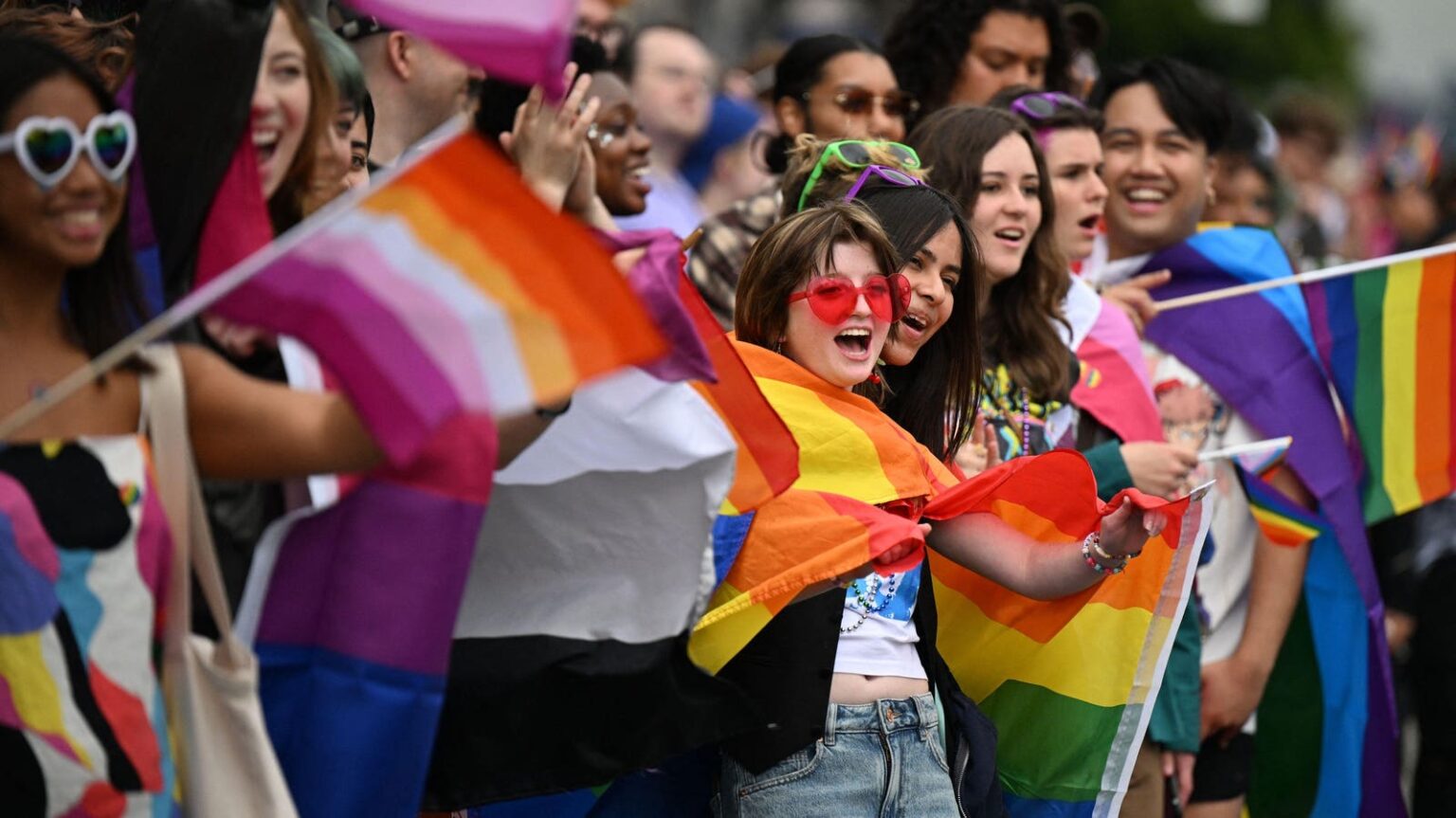Topline
Pride festival organizers are grappling with a budgetary shortfall of hundreds of thousands of dollars this year, as corporations scale back funding for Pride Month events – a trend likely to continue – forcing organizers to turn to crowdfunding and other community sources of support, according to AP.
People attend the 2023 LA Pride Parade on June 11, 2023 in Hollywood, California. The LA Pride … More
AFP via Getty ImagesKey Facts
Brands such as Amtrak, Anheuser-Busch, Benefit Cosmetics, Boeing, Booz Allen Hamilton, Citi, Comcast/Xfinity, Deloitte, Diageo, Garnier, Goldman Sachs, Lowe’s, Mastercard, Meta, Nissan, Pepsi, PricewaterhouseCoopers, Skyy Vodka, Target, Visa and Walmart pulled back Pride sponsorships and donations this year.
Pride organizers across the country are facing major cuts, including San Francisco ($200,000 shy of its $3.2 million budget), New York City (down 20% or $750,000 from last year), Salt Lake City (short $400,000 or half of its budget), Washington, D.C. (off $260,000), Kansas City (-$200,000), St. Louis (-$150,000), Houston (-$100,000) and many other festivals in Colorado, Florida, Ohio, Arkansas and North Carolina have lost funding.
The Minnesota Twin Cities Pride organizers, after severing ties with Target following its retreat on DEI policies, turned to grassroots crowdfunding to make up for its past $50,000 contribution and generated more than double that amount.
Money donated to Pride Month activities is used not just for hosting events and entertainment but also to provide security, which may be more critical this year, given heightened tensions surrounding politically divisive issues – the AP said “At its heart, Pride is both a party and a protest.”
The Gay Pride Calendar reports that nearly 100 U.S. cities will host Pride Month events this year and over 50 celebrations will be held internationally this June.
Key Background
June is Pride Month, a national celebration established in 1999 that honors the LGBTQ community’s contributions to society while affirming their identity and worth. Pride Month festivals are inclusive and safe spaces where LGBTQ individuals can come together and reach out to their broader community. According to Pew Research, two-thirds of LGBTQ adults have participated in Pride Month events and some 16% of non-LGBTQ adults have joined in the festivities. However, both LGBTQ and non-LGBTQ adults are skeptical about the motivations for corporations to support Pride Month festivities. An overwhelming 68% of LGBTQ adults say all or most corporations do so to further business interests. Far fewer – 16% of LGBTQ and 13% of non-LGBTQ adults – believe companies are motivated by a “genuine desire to celebrate LGBTQ people.” And younger LGBTQ individuals under 30 are the most skeptical with 51% saying only a few or no companies support Pride for this reason.
Avoiding Political Flashpoints
Since the Trump administration ended diversity, equity and inclusion programs across the federal government and warned corporations against DEI programs that it says violate federal civil rights laws, corporations have been reassessing their DEI initiatives to avoid potential legal troubles. And, more broadly, they have been reevaluating public positions on issues that cross over into the political arena, what is called brand activism, that could bring undesired public attention. The tone in Washington these days is for businesses to get back to business and given the business disruptions caused by changing tariff policies and the threat of an economic downturn, they have plenty to keep them busy. Supporting Pride Month this year is not so high on some corporate priority lists given the perceived risks.
Brand Activism In Retreat
Corporate social and brand activism peaked between 2016 and 2022, observed Northeastern University marketing professor Amin Grinstein, but most recently, it has been in retreat. For example, Gravity Research found a 60% decrease in Pride engagement across major companies between 2023 and 2024, and that trend continues. In its 2025 Pride Pulse Poll, which surveyed communications and public affairs officers from over 200 major corporations, nearly 40% reported that their companies are reducing Pride-related engagement, and none expect engagement levels to increase this year. A majority (61%) cited pressure from the new administration as the cause for change, followed by 39% concerned about a conservative backlash.
Crucial Quote
“We were already seeing kind of a downward trend. Now, I think that has been accelerated because of the current administration’s crackdown on DEI, its broader movement against LGBTQ rights and its seeming willingness to go after companies that might be opposed to some of its policies,” Luke Hartig, president of Gravity Research, told CNN.
Return To Pride Roots
Not all LGBTQ activists consider the current rollback of corporate support a bad thing. “Big sponsors supported Pride because they knew LGBTQ people had money in our wallets. They weren’t making lasting change, they were just rainbow-washing their logos for the month of June,” Eve Keller, co-president of USA Prides that supports Pride festival organizers, shared with The Guardian. “We had Pride before corporate sponsors paid us any attention. We’re getting back to our community roots with people wanting to connect and collaborate with each other.”
Further Reading
Companies Pull Back From Pride Events as Trump Targets D.E.I. (New York Times, 3/26/2025)
Pride Month Starts This Weekend. Here’s What To Expect (AP, 6/1/2025)
Under Financial And Political Pressure, The LGBTQ+ Community Is ‘Putting The Protest Back In Pride’ Celebrations (CNN, 3/31/2025)
NYC Pride Sees $750k Shortfall Due To Pullback From Big Corporate Sponsors (LGBTA News, 5/22/2025)
Read the full article here


